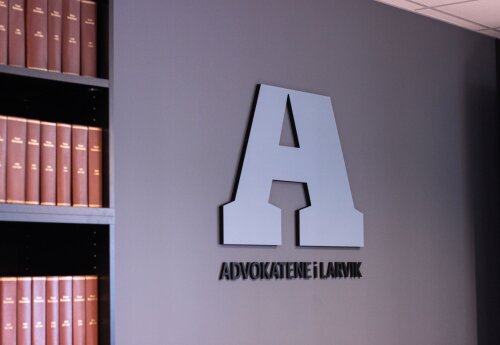Best International Trade Law Lawyers in Norway
Share your needs with us, get contacted by law firms.
Free. Takes 2 min.
Or refine your search by selecting a city:
List of the best lawyers in Norway
About International Trade Law in Norway
International Trade Law in Norway encompasses the legal rules governing the exchange of goods and services between Norway and other countries. With a strong focus on promoting fair and free trade, Norway adheres to international agreements and standards while also implementing its regulations. The legal framework includes customs regulations, trade tariffs, export controls, and compliance with international trade agreements. Norway is a member of various international organizations such as the World Trade Organization (WTO) and the European Economic Area (EEA), influencing its trade policies and legal obligations.
Why You May Need a Lawyer
There are several situations in which individuals and companies might require legal assistance in International Trade Law:
- Negotiating and drafting international trade contracts with partners from different jurisdictions.
- Ensuring compliance with Norwegian import/export regulations and tariffs.
- Resolving disputes related to cross-border transactions or breaches of trade contracts.
- Navigating complex trade agreements and understanding their implications on business operations.
- Handling issues related to trade embargoes, sanctions, or international trade restrictions.
- Addressing intellectual property rights concerns in international trade.
- Ensuring adherence to environmental and ethical standards in trade practices.
Local Laws Overview
Norway's international trade regulations are influenced by its commitments to international and regional agreements. Some key aspects include:
- Customs Regulations: Governed by the Norwegian Customs Act, these laws regulate the importation and exportation of goods, detailing duties, taxes, and documentation requirements.
- Trade Tariffs and Duties: Norway follows the Harmonized System for product classification to determine applicable tariffs, influenced by agreements like the EEA.
- Export Control: Regulations are in place to monitor and control the export of strategic goods, services, and technology.
- Trade Agreements: Norway participates in multiple bilateral and multilateral trade agreements, impacting its trade policies and laws.
- Compliance and Enforcement: Established framework for resolving disputes, ensuring companies adhere to laws, and penalizing non-compliance.
Frequently Asked Questions
What is International Trade Law?
International Trade Law governs trade relations between nations, covering the exchange of goods, services, and intellectual property across borders.
Do I need a lawyer for international trade transactions?
Legal assistance is beneficial to navigate complex international agreements, ensure compliance with local regulations, and address any contractual disputes.
How do customs regulations affect my business in Norway?
Customs regulations determine the taxes and duties payable on imported and exported goods, affecting pricing and supply chain logistics.
What are some common trade barriers in Norway?
Norway implements tariffs, quotas, and import licensing requirements as trade barriers, which vary based on existing international agreements.
How does Norway's membership in the EEA affect trade?
The EEA agreement provides Norway access to the EU single market, impacting trade regulations and any applicable tariffs or trade barriers.
What are export control regulations?
These regulations oversee the export of goods and technologies that might have military applications or be used to violate human rights.
How can I resolve cross-border trade disputes in Norway?
Dispute resolution often involves arbitration, mediation, or litigation under Norwegian law, depending on the contractual agreement between parties.
What happens if my business violates trade laws?
Non-compliance can result in financial penalties, sanctions, and damage to business reputation, along with potential legal proceedings.
Are there specific industries with more stringent regulation?
Certain industries, such as pharmaceuticals, defense, and electronics, often face stricter regulations due to safety and security concerns.
How do I stay updated on changes in trade regulations?
Maintain regular contact with relevant governmental bodies, subscribe to legal updates, and consult legal experts to stay informed.
Additional Resources
Consider reaching out to the following resources for more information on International Trade Law in Norway:
- The Norwegian Ministry of Trade, Industry and Fisheries
- The Norwegian Customs Authority
- The Oslo Chamber of Commerce
- The Norwegian Bar Association
- The World Trade Organization (WTO)
Next Steps
If you need legal assistance in International Trade Law, consider the following steps:
- Identify specific areas of trade law that require legal support.
- Research and consult with law firms specializing in International Trade Law.
- Prepare all relevant documentation and information related to your trade activities.
- Schedule a consultation with a legal expert to discuss your needs and determine the scope of assistance required.
- Stay informed and proactive regarding any changes in trade regulations that might affect your business.
Lawzana helps you find the best lawyers and law firms in Norway through a curated and pre-screened list of qualified legal professionals. Our platform offers rankings and detailed profiles of attorneys and law firms, allowing you to compare based on practice areas, including International Trade Law, experience, and client feedback.
Each profile includes a description of the firm's areas of practice, client reviews, team members and partners, year of establishment, spoken languages, office locations, contact information, social media presence, and any published articles or resources. Most firms on our platform speak English and are experienced in both local and international legal matters.
Get a quote from top-rated law firms in Norway — quickly, securely, and without unnecessary hassle.
Disclaimer:
The information provided on this page is for general informational purposes only and does not constitute legal advice. While we strive to ensure the accuracy and relevance of the content, legal information may change over time, and interpretations of the law can vary. You should always consult with a qualified legal professional for advice specific to your situation.
We disclaim all liability for actions taken or not taken based on the content of this page. If you believe any information is incorrect or outdated, please contact us, and we will review and update it where appropriate.
Browse international trade law law firms by city in Norway
Refine your search by selecting a city.















